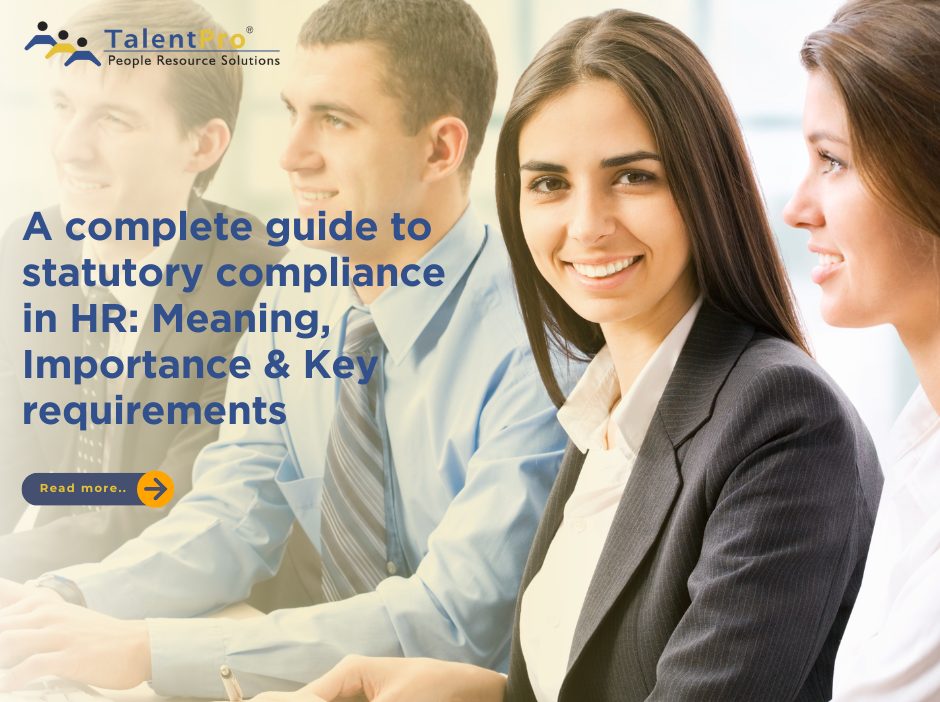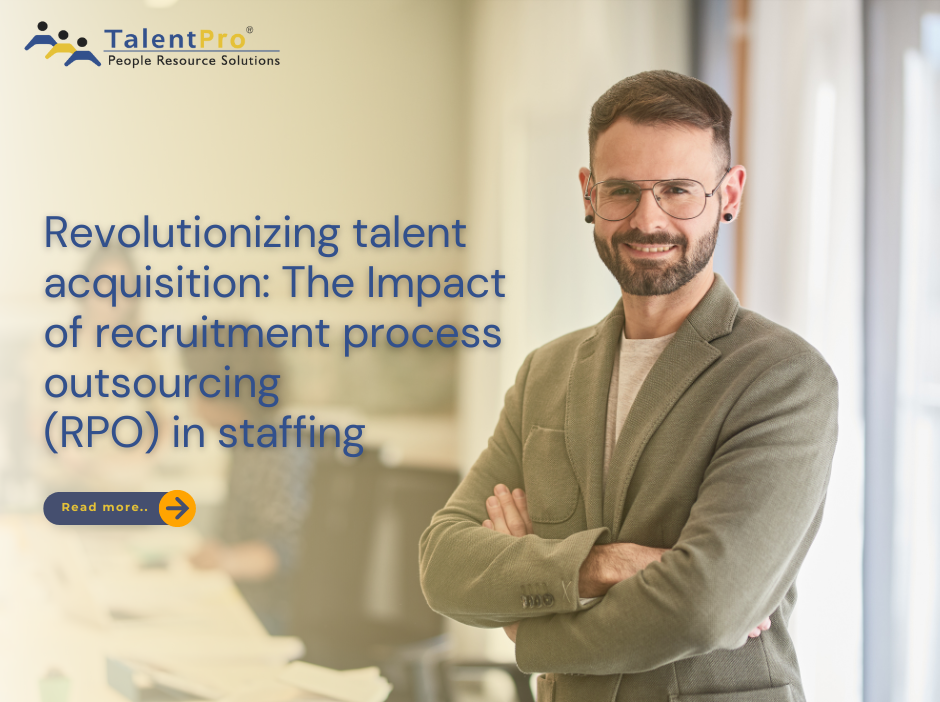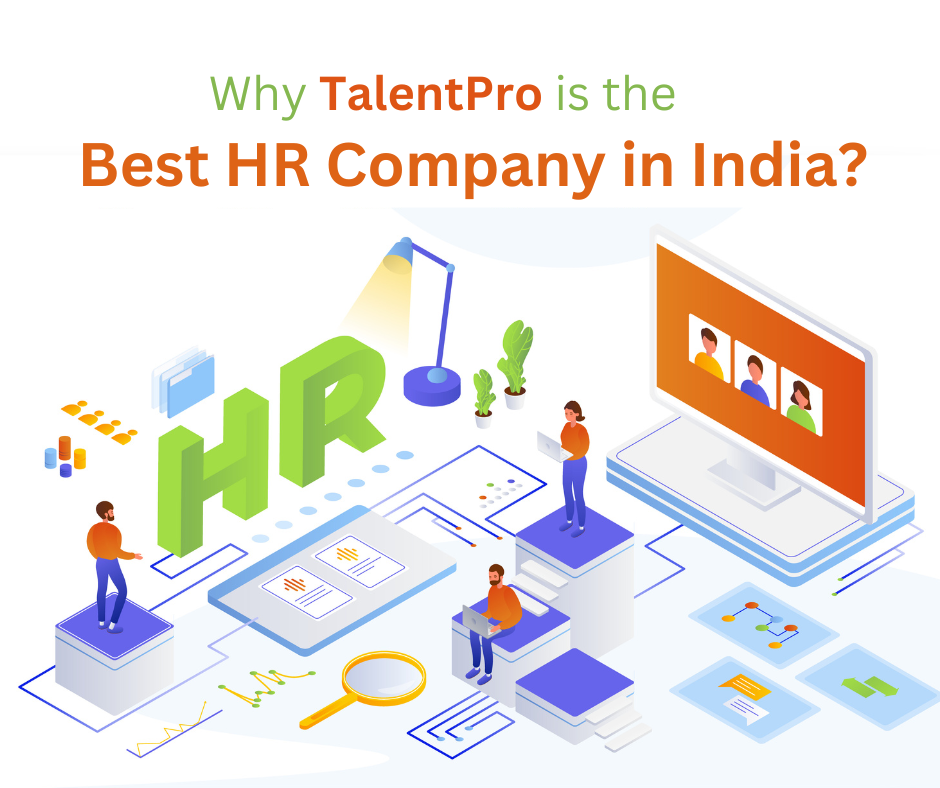Blog
TalentPro’s Human Resources blog is a knowledge portal where we discuss the latest and best practices related to the Human Resources Industry. The portal educates the reader in various areas of interest such as Payroll, Compliances, Staffing, Human Resource Management Services (HRMS), Recruiting, etc.
Blog categories
What is third party Payroll? A complete guide by TalentPro
Payroll is one of the most important and challenging tasks in an organization. It requires accuracy, timeliness, and expertise. For most organizations, especially those that are growing, payroll management can be a daunting task. This is where third-party payroll services…
Statutory compliance checklist 2026
For any business in India, following statutory compliance in HR isn’t optional — it’s mandatory. Missing deadlines or failing to follow labour laws can lead to penalties, lawsuits, and even reputational damage. Yet, many startups and SMEs struggle because compliance rules keep changing…
Ready to scale? Let TalentPro manage your payroll
As your company scales, so does the workload. One of the most intricate and time-consuming activities that keep pace with your growth is payroll management. From processing salaries and tax withholdings to ensuring compliance and statutory filings, payroll can easily become a headache—unless you have the right ally. Growth is exciting. It means more opportunities, more clients, more employees—and yes, more responsibilities.…
A complete guide to statutory compliance in HR: Meaning, importance & key requirements
Today, with a constantly developing business atmosphere, it can be said that compliance with labor laws and regulations in HRM plays a very imperative role for every business unit. Whether it is a startup, a growing business, or an MNC,…
Revolutionize your hiring process: Five innovative recruiting strategies in 2026
What is a recruitment strategy? A recruitment strategy is a formal plan that details how recruiters identify and hire top talent. Recruiters should define the types of roles they’re hiring for, the formats for job advertisements and the criteria for…
Revolutionizing talent acquisition: The impact of recruitment process outsourcing (RPO) in staffing
Recruitment Process Outsourcing (RPO) has emerged as a transformative solution in the realm of staffing and human resources management. In today’s competitive business landscape, organizations are increasingly turning to RPO providers to streamline their hiring processes, enhance candidate quality, and…
What is third party Payroll? A complete guide by TalentPro
Payroll is one of the most important and challenging tasks in an organization. It requires accuracy, timeliness, and expertise. For most organizations, especially those that are growing, payroll management can be a daunting task. This is where third-party payroll services can help. At TalentPro, we assist organizations in managing their payroll functions effectively and efficiently. What Is third-party payroll? Third-party payroll is a process of outsourcing payroll functions to a…
Statutory compliance checklist 2026
For any business in India, following statutory compliance in HR isn’t optional — it’s mandatory. Missing deadlines or failing to follow labour laws can lead to penalties, lawsuits, and even reputational damage. Yet, many startups and SMEs struggle because compliance rules keep changing every year. That’s why having a statutory compliance checklist for 2026 is crucial. Provident Fund (PF) Compliance – EPF Act, 1952 The EPF Act of 1952 requires that organizations with more than…
Ready to scale? Let TalentPro manage your payroll
As your company scales, so does the workload. One of the most intricate and time-consuming activities that keep pace with your growth is payroll management. From processing salaries and tax withholdings to ensuring compliance and statutory filings, payroll can easily become a headache—unless you have the right ally. Growth is exciting. It means more opportunities, more clients, more employees—and yes, more responsibilities. But as your business scales, so do your back-office complexities—especially payroll management. If you’re spending too much time calculating salaries, managing statutory compliance, and fixing payroll errors, it’s time to…
A complete guide to statutory compliance in HR: Meaning, importance & key requirements
Today, with a constantly developing business atmosphere, it can be said that compliance with labor laws and regulations in HRM plays a very imperative role for every business unit. Whether it is a startup, a growing business, or an MNC, compliance with labor laws and regulations affects smooth operation and develops a trustworthy business atmosphere. This blog contains all information regarding the scope and importance of statutory compliance for HR,…
Understanding Statutory Compliance in HR: Key Regulations and Best Practices
What is Statutory compliance in HR? Statutory compliance in HR refers to the adherence and fulfilment of legal requirements, rules, and regulations established by statutes in the context of managing employees within an organization. It encompasses the obligation of organizations to comply with labour laws established by both the central and state governments in India. These laws are designed to protect the rights and well-being of employees, employers, and the…
Revolutionize your hiring process: Five innovative recruiting strategies in 2026
What is a recruitment strategy? A recruitment strategy is a formal plan that details how recruiters identify and hire top talent. Recruiters should define the types of roles they’re hiring for, the formats for job advertisements and the criteria for determining top candidates. These basic starting points can help you recruit the job seekers you are looking for. They range from basic methods, like posting on job boards, to more…
Featured posts

What is third party Payroll? A complete guide by TalentPro

Statutory compliance checklist 2026

A complete guide to statutory compliance in HR: Meaning, importance & key requirements













